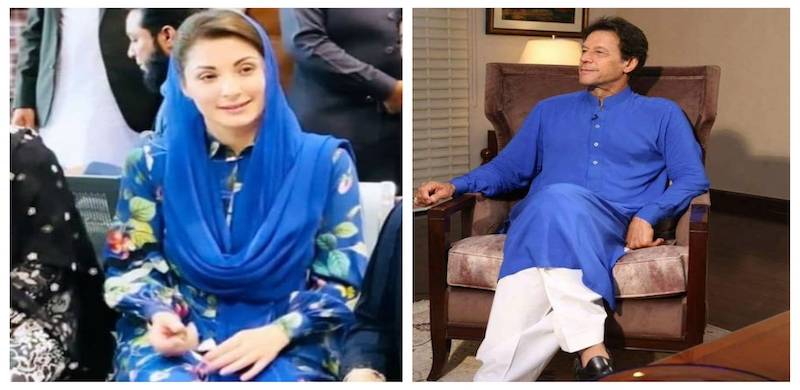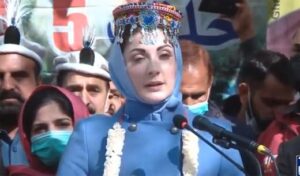
Maryam Nawaz Sharif, a politician from the house of Sharifs of PML-N, is the first woman since Benazir Bhutto to reach the leadership level in a party. She is learning the political ropes to blow hot and cold and actively engages with her supporters on social media. Every time she makes a public appearance, she gets attacked on social media for her clothing, shoes, makeup and dressing; more than her strong political views.
As a female politician, she is at the receiving end of the most vile and abusive online hashtags on a regular basis. The hypocrisy of her detractors is exposed when people who habitually flaunt their privilege and income based entitlements be it luxury brands to vacation or opulent billion rupee wedding, on Instagram and Facebook stories, criticise her for her ‘expensive’ outfits and shoes.
Maryam Nawaz is once again being criticised for the same after her party member Hina Pervez Butt referred to her as a ‘style queen’ in a tweet with her photo. (Hina is herself an accomplished designer and Young Global Leader of 2016.)
Ironically, the argument that Maryam should not be called a fashion icon is being promoted by trolls who unabashedly call PM Imran Khan ‘handsome’ and think he has a ‘killer smile’.
In South Asia and the subcontinent, resistance politics is known to have been led by women. Maryam is not only good looking, but has a remarkable dress sense. Her political edifice is politics of resistance which can be debated at length. Through her dressing, she has not only made political statements (wearing shirt with her father’s picture to protest his disqualification), but has also used it to connect to the region and community she visits by choosing to wear traditional dresses. While dressing does enhance one’s personality, it does not exclusively define one’s views. Does a person need to be in rags to understand or talk about poverty? Does one’s dressing camouflages one’s political views? Is political ideology dependent on choice of one’s clothes or shoes or colour of one’s lipstick? Or is this scrutiny only meant for women politicians?

Maryam’s haters and/or critics’ argue that Pakistan is a poor country and therefore its politicians should appear simple. It is appalling to read and listen to such reasoning. The most absurd one being that she chose to wear ‘red dress’ to a recent court appearance because it represents the Left as well as ‘dissent’. I fell off my chair thinking that most brides wear red and on happy occasions we have some sort of red. Does that mean that all of them and us are actually not happy but are protesting against something?
I fail to understand the societal fetish with women’s dressing. A woman wearing a sleeveless shirt is characterless. A burka or hijab clad woman is regressive. Western wearers are morally deranged. Sari is unpatriotic, and no dupatta is ‘weak family values’. All possible dress options will bring out some silly attribution for women; and make them a victim of online and offline violence, abuse and harassment. Unfortunately, our PM holds similar opinion and considers a woman's choice of dress a point of enticement.
Patriarchal control over the life of women can feel itself being weakened as women make a collective and push for their due access to rights, equity and equality as equal citizens.
Journalist Benazir Shah rebuked many by tweeting, “How a woman politician dresses, what she wears and how she styles herself is often used as a weapon by men to dismiss her, to label her as frivolous and not serious. The argument that women who enjoy fashion are incapable of leading is misogynistic. Sartorial dressing sense.
Analyst Reema Omar took many such trolls to task by stating that: “Telling how our desire for “simplicity” in politicians begins and ends with policing how women look. Men can drive the most expensive cars, live in lavish homes, show off their fitness and no questions are asked. But if a woman likes dressing up, she becomes unsuited for politics. Fashion/beauty can be one part of what makes a woman politician, but we exaggerate this part and reduce her to it. Then we argue there should be more to a leader than appearance.”
These are the last cries of the scared men. Woman even as a word is getting scarier than it ever was in Pakistan for these insecure men. Patriarchal control over the life of women can feel itself being weakened as women make a collective and push for their due access to rights, equity and equality as equal citizens. The loud linguistic misogyny is an indicator that it hurts.
Women are refusing to be invisible or silent. The online and offline harassment of women be it for Maryam Nawaz or others is a last ditch effort to hold on to dying argument that public spaces are not for women; and that 'good women' don’t step out.

